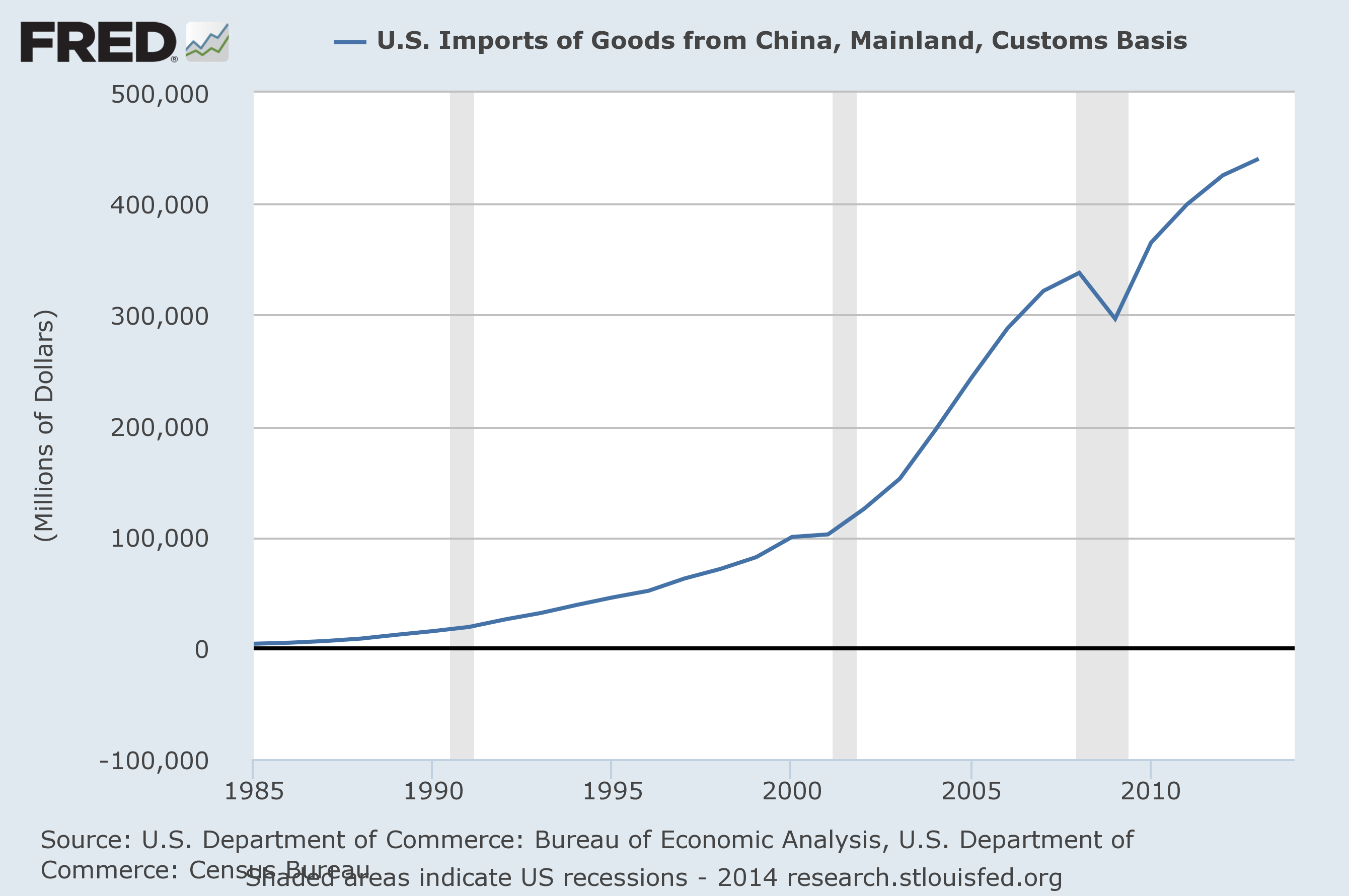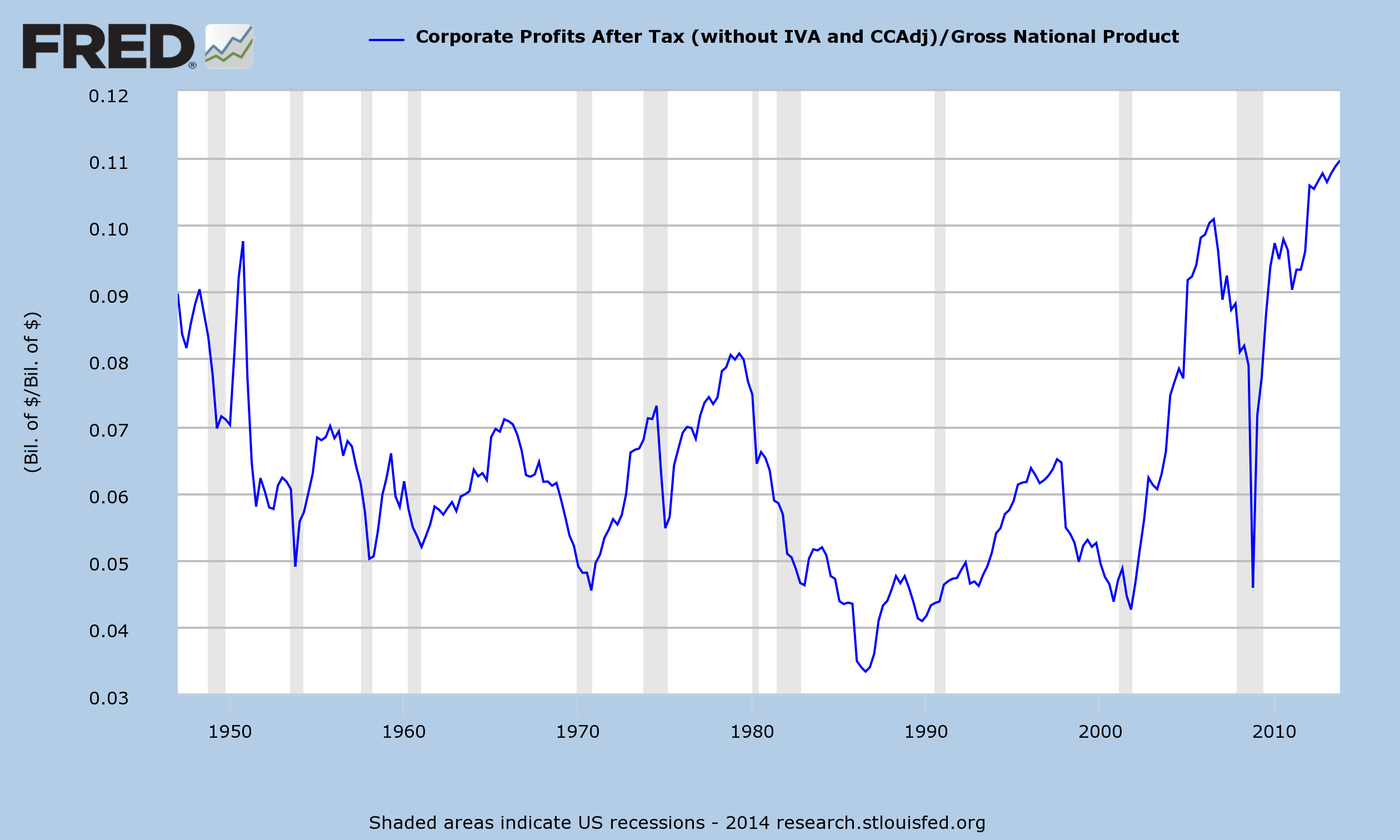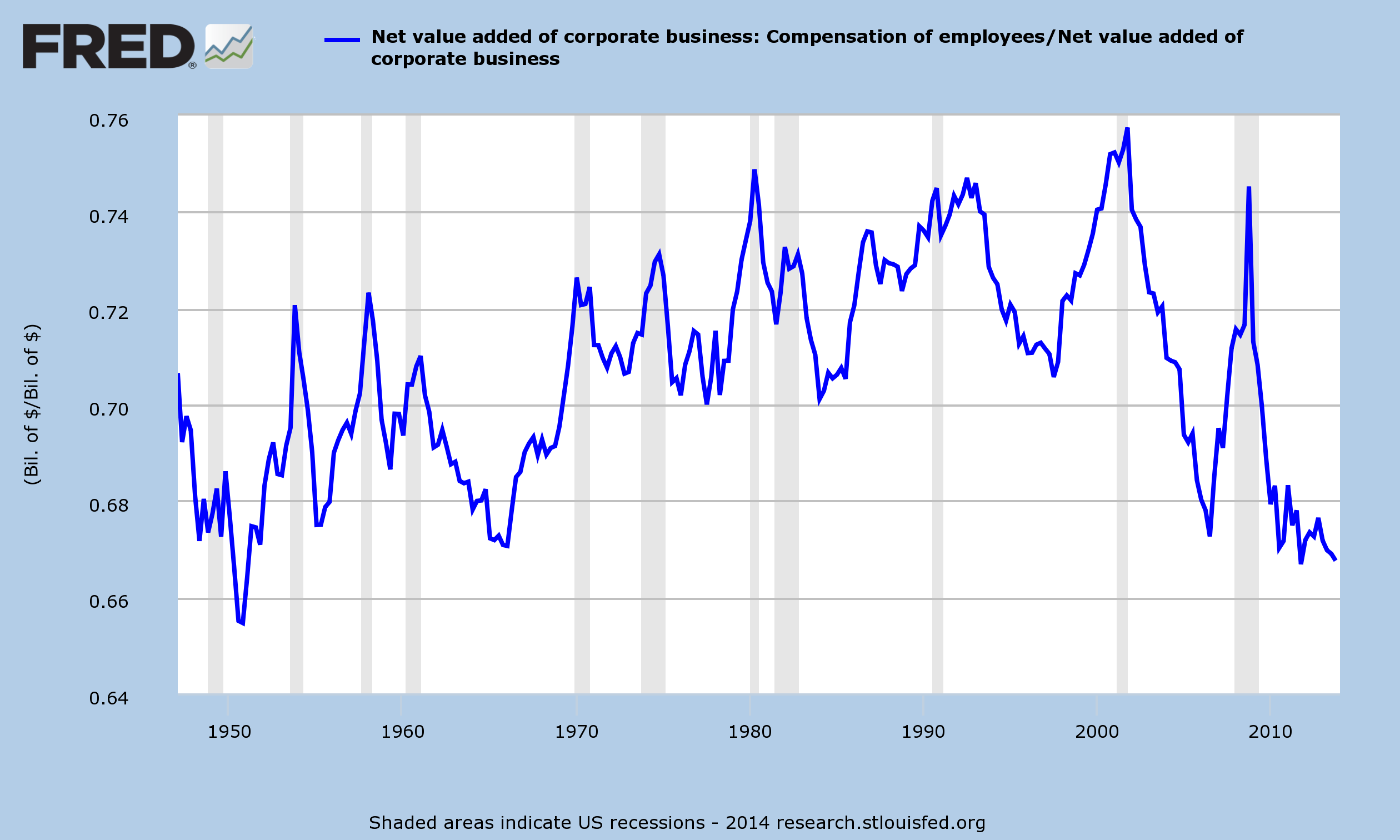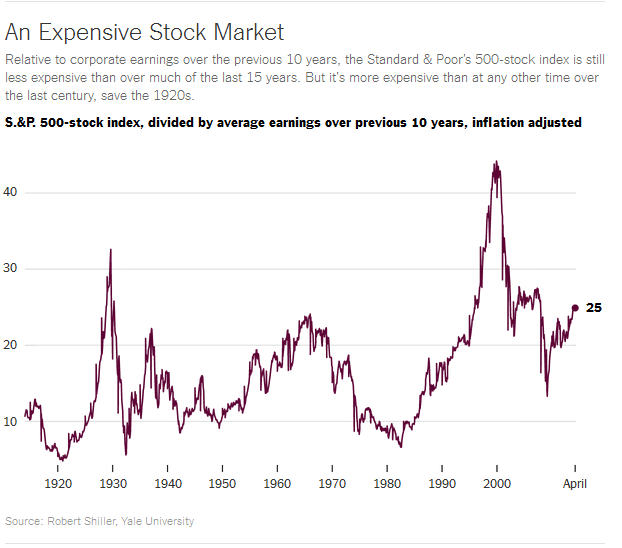Is the market overpriced? Episode V
By Colin Twiggs
May 21st, 2014 7:30 p.m. EDT (9:30 a:m AEST)
Please note the recent changes to our Privacy Policy.
These extracts from my trading diary are for educational purposes. Any advice contained therein is provided for the general information of readers and does not have regard to any particular person's investment objectives, financial situation or needs and must not be construed as advice to buy, sell, hold or otherwise deal with any securities or other investments. Accordingly, no reader should act on the basis of any information contained therein without first having consulted a suitably qualified financial advisor. Full terms and conditions can be found at Terms of Use.
In my last post I concluded that the same factors driving rising inequality — new technologies and access to cheap labor through increased globalization — may also be driving a sustainable increase in US corporate profits. While investors may be understandably wary of "this time is different", consider the following:
The rise of China as a trading partner over the last two decades.

Corporate profits at 11% of GNP suggest a new paradigm when compared to the historic (normal) range of 5% to 7%.

The decline in employee compensation, as a percentage of corporate value added, mirrors the rise in corporate profits.

And Robert Shiller's CAPE, normally used to argue that the market is currently overpriced. If we stood in 1994 and looked at the range of CAPE values for the past century, we would no doubt have concluded that a CAPE value greater than 20 indicates the market is overpriced. In the last two decades, the CAPE only briefly dipped below 20 at the height of the global financial crisis. Now pundits argue that a CAPE value greater than 25 indicates the market is overpriced. Something has definitely changed.

Whether the change is sustainable, only time will tell. But one thing is clear. Of the 466 corporations who have so far reported earnings for the first quarter 2014, 77% have either beaten (68%) or met (9%) their estimates. Corporate profits are not in imminent danger of collapse.
More....
It never was my thinking that made the big money for me. It always was my sitting. Got that? My sitting tight! It is no trick at all to be right on the market. You always find lots of early bulls in bull markets and early bears in bear markets. I've known many men who were right at exactly the right time, and began buying or selling stocks when prices were at the very level which should show the greatest profit. And their experience invariably matched mine—that is, they made no real money out of it. Men who can both be right and sit tight are uncommon.
~ Jesse Livermore

Author: Colin Twiggs is a former investment banker with almost 40 years of experience in financial markets. He co-founded Incredible Charts and writes the popular Trading Diary and Patient Investor newsletters.
Using a top-down approach, Colin identifies key macro trends in the global economy before evaluating selected opportunities using a combination of fundamental and technical analysis.
Focusing on interest rates and financial market liquidity as primary drivers of the economic cycle, he warned of the 2008/2009 and 2020 bear markets well ahead of actual events.
He founded PVT Capital (AFSL No. 546090) in May 2023, which offers investment strategy and advice to wholesale clients.
